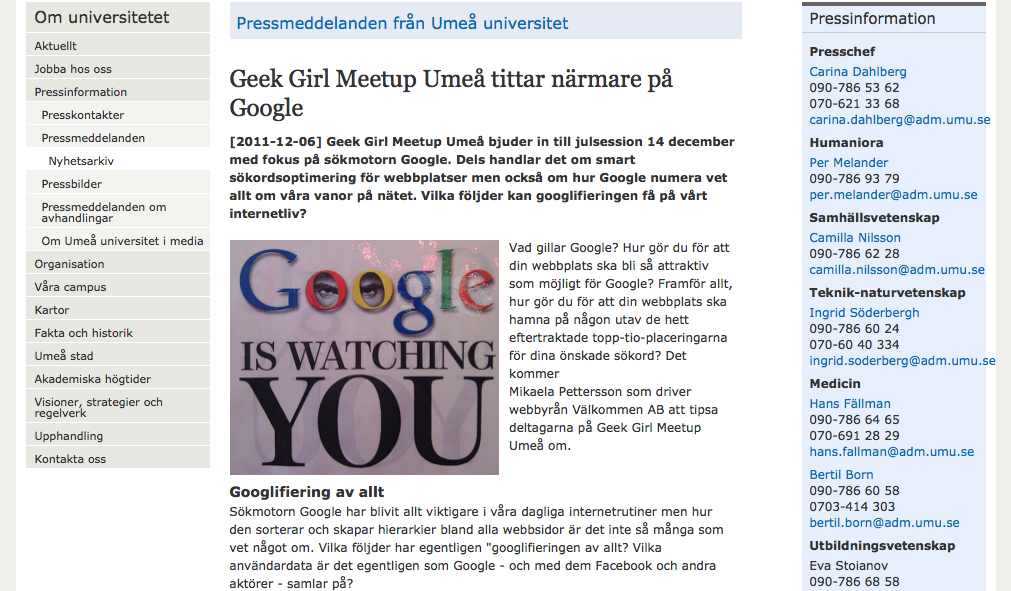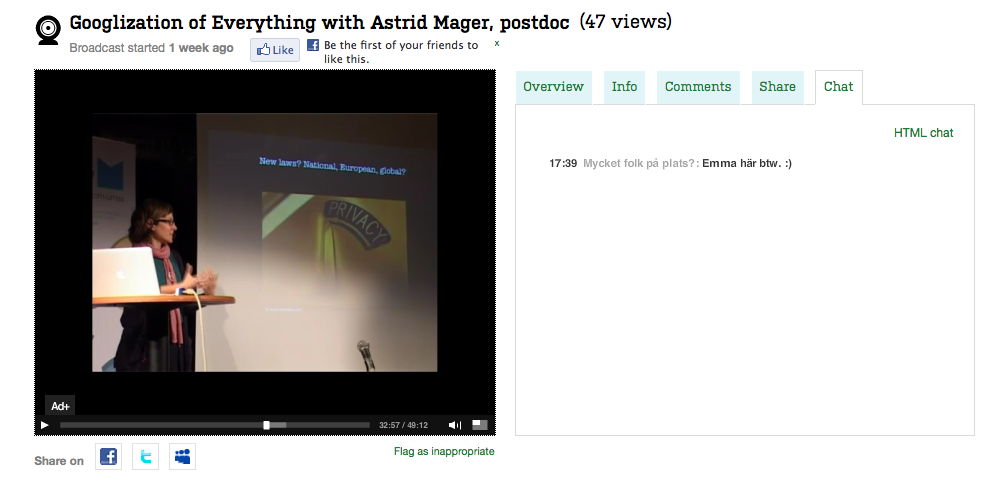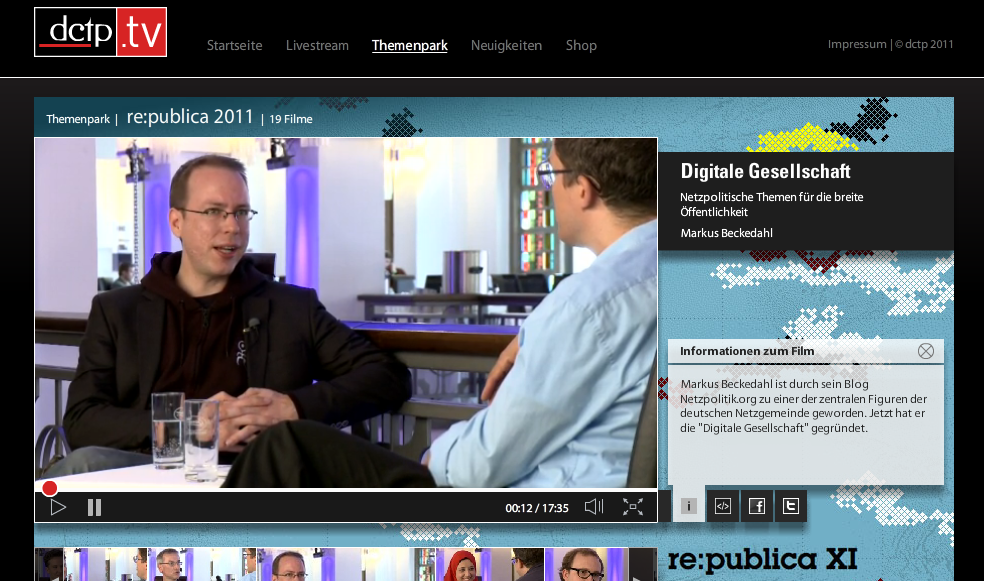Before leaving Umeå on Friday (!) I’ll turn into a geek girl tomorrow afternoon! According to the HUMlab blog (and Emma Ewadotter, who is in the Geek Girl Umeå steering committee) Geek girl
“started out in Stockholm in 2008 as a way for women interested in web, technology and innovation to meet and exchange ideas. It is for women, by women and all about professionalism and fun. It has become increasingly popular and the growing number of Geek Girls is a good indication that it is something that is here to stay. It is indeed a marvelous concept that is already spreding over the world (there are Geek Girl initiatives in London, Gothenburg and Copenhagen just to mention a few).”
I’ve heard about Geek Girl Dinner in Vienna, which seems to be some kind of sister event, which was founded in London (2005) by Sarah Blow “who was tired of being the only woman at technical events” (Wikipedia). Since I haven’t attended any Geek Girl events yet I’m excited to present my work in this illustrious circle.
The motto of tomorrow’s meeting is search engines, and Google in particular. I’ll talk about the “Googlization of Everything” (Vaidhyanathan 2011) and about social search, as well as user profiling, surveillance and exploitation, most importantly. Moreover, Mikaela Pettersson will be speaking about search engine optimization. I’m looking forward to that! It should be fun (and will distract me a little from the annoying packing, tidying, cleaning, …, I’ve to do right now!) 😉
Documentation of the event: video & pics. Thx for a great evening & good luck with future Geek Girl events!!!




